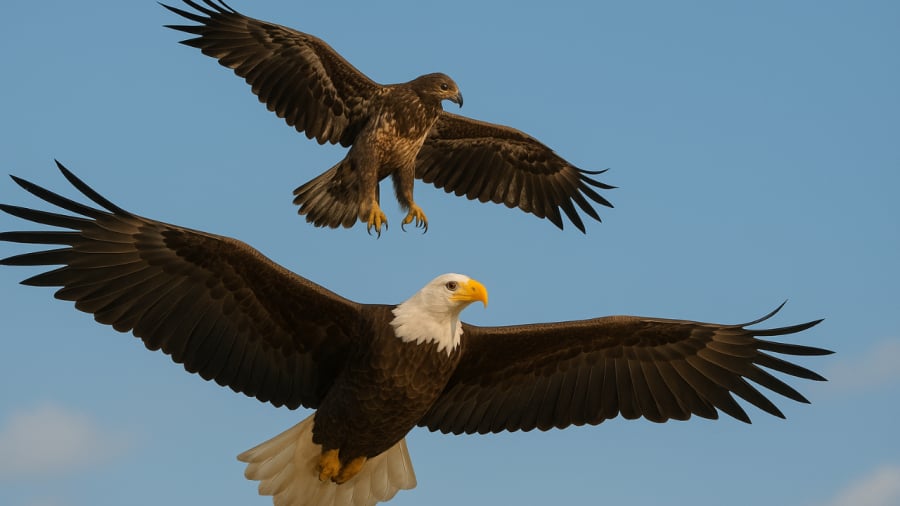Parenting the Hawk Way – Nurturing Independence
It’s no coincidence that the old adage, “tough love knows no bounds,” rings true even today. However, the methods of discipline have evolved, and instead of relying on strict rules and punishment, modern parents need symbolic tools to shape their children’s mindset.
Enter the majestic hawk, a creature synonymous with strength and freedom. Hawk parents don’t coddle their young; instead, they nudge them out of the nest when the time is right. Initially, the fledgling falcons panic and falter, but their mother doesn’t intervene immediately. She hovers nearby, only catching them at the last moment before they hit the ground and gently carrying them back up. This process repeats until the young hawk can soar on its own.
Is this the ideal approach to teaching our children how to stand on their own two feet?

When Children No Longer Fear Their Parents, It’s Time to Reevaluate
As
When a child easily talks back or dismisses their parents’ words, it’s not a sign of intelligence or confidence but of a breakdown in parental authority.
The Hawk Law – Firm but Not Inflexible
The Hawk Law isn’t about imposing strict discipline; it’s about setting clear expectations and allowing children to experience consequences safely. For instance, instead of constantly reminding your child to do their homework, agree on a rule: if they don’t finish their work on time, they won’t be allowed to play that evening. Even if they throw a tantrum, stand firm in your decision.
The key is for children to sense that their parents are always watching over them but refraining from excessive intervention. Like the hawk mother, always be ready to catch them – but only when they truly need it.
Teaching Independence Doesn’t Mean Neglect
Ms. Phuong Anh, a mother of two from Hanoi, shared her experience: “Before, I used to follow my children around, reminding them of every little thing, from putting on clothes to picking up books and tidying up toys. As they grew older, they became more reliant on me. After learning about the Hawk Law, I tried something different: I assigned tasks and then stepped back to observe. To my surprise, they were more capable than I thought.”
Professor Huynh Van Son, an educational psychologist, once stated in an interview with Dan Tri: “Independence is an important quality, but to develop it, children need a space that is challenging yet safe. The role of parents is to create this space, not to do things for them.”

Incorporating the Hawk Law into Daily Life
Set Boundaries Early On
Don’t wait until your child is rude to teach them respect. Consistently uphold principles like “don’t interrupt adults” and “don’t shout when you don’t get your way.”
Don’t Be Afraid of Disappointing Your Child
Your child doesn’t need your indulgence; they need a clear framework to feel secure. When they understand the consequences of their actions, they’ll learn self-control.
Accompany Without Interfering
Let your child try, make mistakes, and learn from them. But always be there, so they know: “Mom and Dad won’t abandon me, but they won’t do things for me either.”
Conclusion: Hawks Don’t Raise Their Young to Keep Them, But to Set Them Free
As parents, we all want our children to be talented, strong, polite, and successful. However, our love can sometimes become a cage. Try something different: help your children less but observe them more. Give fewer orders but be consistent with the rules. Lose your temper less but be firm with consequences.
Because one day, they’ll leave the nest. And when that day comes, you’ll be proud that they can soar on their own.






























